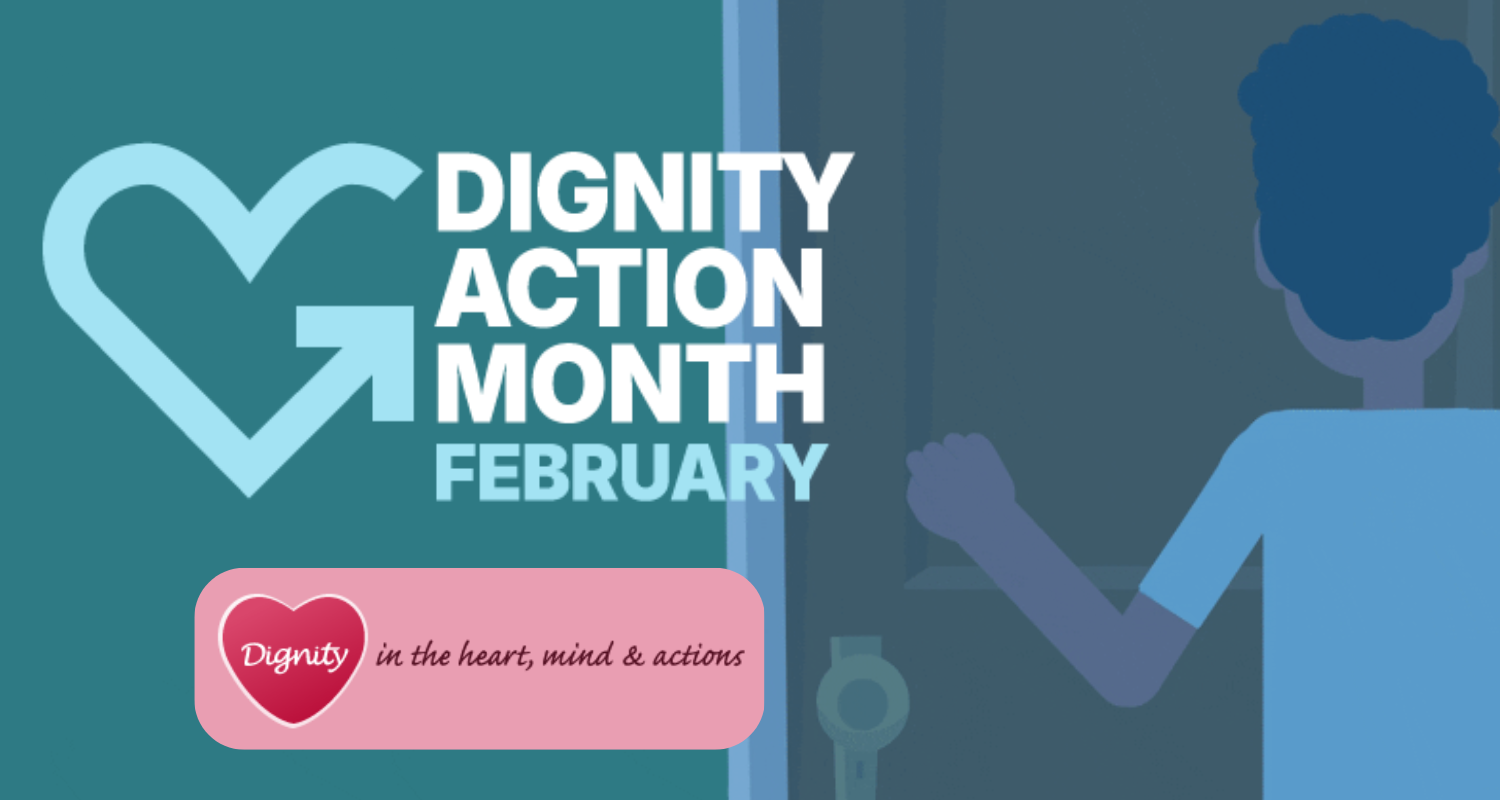What is Dignity Action Month?
Every February, Dignity Action Month offers a vital opportunity for individuals and organisations to come together and uphold the values of dignity, respect, kindness, and compassion. The month serves as a reminder to prioritise these values, ensuring that people who use care services or receive support are treated as individuals with choice, control, and a sense of purpose in their daily lives.
This year’s theme, “3 Little Deeds,” encourages everyone to spread dignity through simple acts that promote a positive, respectful environment.
How can you get involved?
During Dignity Action Month, everyone has an opportunity to make a difference. Whether you’re a health or social care worker, or a member of the public, there are numerous ways to promote dignity in your workplace or community.
Here’s how you can get involved:
- Health and Social Care Workers: Promote dignity in your workplace through small, meaningful actions.
- Members of the Public: Promote dignity and respect within your local community by engaging in respectful actions and supporting those in need.
There are a variety of resources to help guide your efforts:
- Resource Pack : Get practical ideas for activities and initiatives you can carry out in your workplace or community.
- Dignity Action Day Memory Book : Find inspiration from others who have made a difference.
- Share Your Actions: Once you’ve decided on your activity, add it to the website to inspire and encourage others to get involved.
You can also Visit Dignity Action Month’s Event Page for activity suggestions.
Join the conversation on social media with the hashtag #ShareForBetterCare to connect with others promoting dignity and respect.
Privacy and Dignity in Social Care Settings
In social care, privacy and dignity are fundamental rights that must be respected to ensure individuals feel valued and cared for. Both privacy and dignity are integral to building trust and empowering people in care.
For care providers, respecting privacy and dignity involves:
- Seeking consent before sharing personal information.
- Avoiding unnecessary intrusions into personal spaces.
- Offering care that preserves each individual’s identity.
Care professionals must be well-trained in these concepts to consistently deliver care that honours the privacy and dignity of every individual.
CareTutor’s Role in Promoting Dignity
At CareTutor, we understand the importance of maintaining privacy and dignity in social care settings. That’s why we offer a Privacy and Dignity eLearning course, designed to help care professionals understand and apply these core principles in practice.
Our course is fully aligned with the CQC requirements for Fundamental Standard 10: Dignity and Respect, providing interactive, video-based training that emphasises good practices in upholding privacy and dignity.
Check out our course here: Privacy and Dignity eLearning Course
Follow us on Facebook to stay updated with the latest in Social Care!
Get In Touch with us today!
Talk to our team on 020 3129 5667
Email us on: info@caretutor.org
